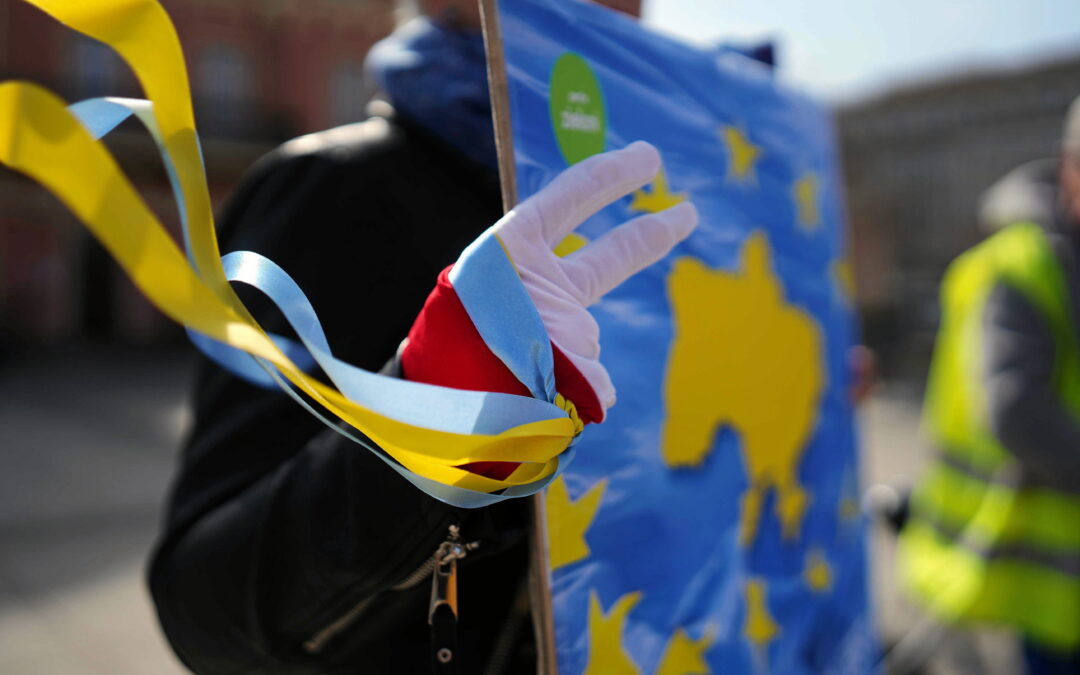The Polish government wants the European Union to provide new forms of funding for member states to help them host people who have fled from Ukraine. It has jointly proposed with Germany a system under which Brussels would grant €1,000 for each refugee.
Poland has received by far the largest number of refugees from Ukraine: around 2.4 million people have crossed the border since Russia’s invasion. While some have moved on elsewhere, it is believed that the majority remain in Poland.
Last week, ruling party leader Jarosław Kaczyński declared that his country “deserves some help” from the international community in dealing with the situation, but added that “we will not go begging” for it.
Behind the scenes, however, the Polish government has been pushing for financial support from the EU. Last week, the interior minister, Mariusz Kamiński, and his German counterpart, Nancy Faeser, had jointly appealed to the European Commission for financial assistance.
“Such support could take the form of financing of, for example, €1,000 for a person temporarily granted protection in a member state,” read their letter, quoted by the Polish Press Agency (PAP).
“The estimated costs within the national budget of Poland in this first period already amount to at least €2.2 billion,” they added. “We believe the time has come to show concrete European support not only between member states, but also for Ukraine and its citizens. It is our moral duty not only to accept them, but to protect and care for them.”
Speaking to PAP, deputy interior minister Bartosz Grodecki confirmed that the letter “concerns the creation of a safe and dedicated transport system for refugees from Ukraine to other member states and the preparation of a special and effective method of financing the reception costs incurred by the most burdened EU countries”.
On Monday, EU interior ministers met to discuss the situation. Although the European Commission says that up to €17 billion is available for helping member states with refugees, Poland expressed scepticism over how quickly that money can be accessed and the fact that it comes from existing funds.
“It’s about the use of ‘old’ money from the EU budget,” said Grodecki, quoted by Deutsche Welle. He added that it was unclear “how to formally apply for it” given that EU cohesion funds, from which the money will be taken, “do not allow for ad hoc spending”.
“We want access to them to be more effective than it has been so far, and we want them to be able to cover the costs that have already been borne by member states,” he said, quoted by PAP. But also “we have to talk about new money as part of new financing tools”.
Speaking last week, Poland’s minister for funds and regional policy, Grzegorz Puda, also noted that the European Commission has so far only “reclassified existing [financial] instruments” for helping refugees. We “need fresh resources”, he said.
On Monday, the interior ministers agreed that there should be no relocation system of the type introduced during the migration crisis of 2015-16. Instead, reports Gazeta Wyborcza, there will be a “solidarity platform” whereby countries will make spaces available for refugees and offer them the possibility of moving.
“We do not need a relocation system, because people who come can resettle themselves thanks to the freedom of choice of country under the EU’s temporary protection rules,” said European Commission Vice President Margaritis Schinas.
At today’s Council of Home affairs Ministers, the @EU_Commission and @Europe2022FR presented a 10 point plan for stronger European coordination on welcoming people fleeing the war against Ukraine.
Strong endorsement by Interior Ministers.
European solidarity at its best. pic.twitter.com/jbXCMIcC3x
— Margaritis Schinas (@MargSchinas) March 28, 2022
After Monday’s meeting, Schinas also announced that the commission had presented a ten-point plan to help refugees from Ukraine, including improving transport coordination for those wishing to move between member states.
He also made clear the scale of the challenge facing the EU, noting that the flow of refugees from Ukraine has been five times greater than during the Yugoslav wars and almost three times greater than that of people leaving Syria, reports the AA press agency.
Yesterday, Poland’s president, Andrzej Duda, spoke with European Commission President Ursula von der Leyen, with the pair discussing “initiatives for Ukrainian refugees and Poland’s relations with the Commission”, said presidential aide Jakub Kumoch.
Przed chwilą z inicjatywy 🇪🇺 odbyła się rozmowa telefoniczna @prezydentpl @AndrzejDuda z przewodniczącą @EU_Commission @vonderleyen . Dotyczyła inicjatyw na rzecz uchodźców ukraińskich i relacji Polski z Komisją. 🇵🇱🤝🇪🇺 pic.twitter.com/TCDxIcEeS1
— Jakub Kumoch (@JakubKumoch) March 29, 2022
Main image credit: Grzegorz Skowronek / Agencja Wyborcza.pl

Daniel Tilles is editor-in-chief of Notes from Poland. He has written on Polish affairs for a wide range of publications, including Foreign Policy, POLITICO Europe, EUobserver and Dziennik Gazeta Prawna.




















